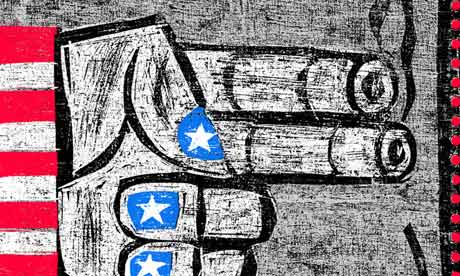The implications of the report stretch around the whole world, with much of the most controversial activity taking place off US soil. The map above shows just how many countries were participants in the CIA programme, according to the George Soros’ Open Society Foundation’s 2013 report.
Though unofficial, that very detailed probe concluded that 54 countries around the world assisted the CIA’s programme – 25 of them in Europe.
Today’s report, actually a 480-page summary of a 6,000-page investigation from the Senate Intelligence Committee, is expected to include graphic details about sexual threats, waterboarding and other harsh interrogation techniques meted out to captured militants since the 9/11 terror attacks.
Preparing for a worldwide outcry, and possibly even violence, from the publication of such graphic details, the White House and U.S. intelligence officials said on Monday they had taken steps to shore up security of US facilities worldwide.
But what is the report? And how much light will it shine on almost a decade and a half of secretive, possibly illegal Government activity.
 American diplomatic and military posts overseas have been told to prepare themselves for violent protests this week if the US Senate proceeds with its promised release of a long-awaited report into 'enhanced' interrogation techniques used by the CIA on prisoners after the 11 September attacks 13 years agoWhat is the report?
American diplomatic and military posts overseas have been told to prepare themselves for violent protests this week if the US Senate proceeds with its promised release of a long-awaited report into 'enhanced' interrogation techniques used by the CIA on prisoners after the 11 September attacks 13 years agoWhat is the report?
The report, which took years to produce, is the first independent assessment of the CIA's "Rendition, Detention and Interrogation" program, which George Bush authorised after 9/11.
Bush ended many aspects of the program before leaving office, and Obama swiftly banned so-called "enhanced interrogation techniques," which critics say are torture, after his 2009 inauguration.
Senate Intelligence Committee staff reportedly reviewed around six million pages of information, while the report itself has over 38,000 footnotes citing CIA documents.
What details will it reveal?
Sources say the overall findings of the report are expected to be that the CIA programme did not deliver life-saving intelligence, that its techniques were more brutal than previously admitted, and that CIA officials misled the White House as to the extent of their activities.
More specifically, the report is said to describe how senior al-Qaeda operative Abdel Rahman al Nashiri, suspected mastermind of the 2000 bombing of the USS Cole, was threatened by his interrogators with a buzzing power drill. The drill was never actually used on Nashiri.
 President Obama speaking ahead of the expected release of a Senate report that criticises the CIA’s treatment of captivesIn another instance, the report documents how at least one detainee was sexually threatened with a broomstick, sources told the Reuters news agency.
President Obama speaking ahead of the expected release of a Senate report that criticises the CIA’s treatment of captivesIn another instance, the report documents how at least one detainee was sexually threatened with a broomstick, sources told the Reuters news agency.
Other methods, such as sleep deprivation, confinement in small spaces and waterboarding, will be described as having gone beyond what was “legally allowable”, CBS News reported.
Cases in which CIA interrogators threatened one or more detainees with mock executions - a practice never authorised by Bush administration lawyers - are documented in the report, the Reuters sources said.
Why has it taken so long to be published?
It has taken three separate bipartisan votes to create, approve and finally declassify the report – in 2009, 2012 and 2014 respectively.
Republicans have fiercely opposed the publication, suggesting it will be to the detriment of national security, and critiques from Republican committee members and CIA officials are expected to be included in the release.
 Abdulhakim Belhadj, a Libyan who claimed Britain helped the CIA in his illegal rendition into the hands of the Gaddafi governmentWith negotiations over how much could be released complete, Secretary of State John Kerry had earlier asked the committee to “consider” changing the timing of the report.
Abdulhakim Belhadj, a Libyan who claimed Britain helped the CIA in his illegal rendition into the hands of the Gaddafi governmentWith negotiations over how much could be released complete, Secretary of State John Kerry had earlier asked the committee to “consider” changing the timing of the report.
But that request has been denied – the committee does not want to risk not coming out under this Government, giving a potential new Republican government the chance to bury it altogether.
How will the world respond?
Preparing for a worldwide outcry, and possibly even violence, from the publication of such graphic details, the White House and US intelligence officials said on Monday that they had taken steps to shore up security of US facilities worldwide.
“There are some indications that the release of the report could lead to greater risk that is posed to US facilities and individuals all around the world,” White House spokesman Josh Earnest said.
 John Kerry asked the committee to 'consider' the timing of the reportBut because so much of the CIA programme appears to have involved activity away from US soil, many other countries around the world will be concerned.
John Kerry asked the committee to 'consider' the timing of the reportBut because so much of the CIA programme appears to have involved activity away from US soil, many other countries around the world will be concerned.
The US State Department has warned all overseas posts to be prepared for a “range of reactions” in the wake of the report.
And the Republican chairman of the House Intelligence Committee, Mike Rogers, has been outspoken in his opposition. “I think this is a terrible idea,” he said on CNN. “Foreign leaders have approached the government and said, ‘You do this, this will cause violence and deaths’.”
 9 December 2014 Last updated at 16:15
9 December 2014 Last updated at 16:15





